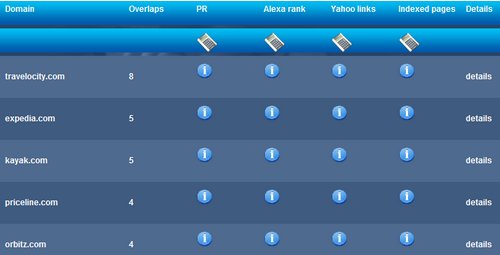Don’t be a Link Stalker, Do Competitor Research and Backlinks Acquisition the Right Way
Do you know what a link stalker is? A link stalker is a person that goes through your links all the time and ruins them for you. You comment somewhere, a nice meaningful comment and a few days, weeks or months later you see a certain someone’s comment there, great post and stuff. You create a nice business profile page, soon the link stalker has the same profile, you make a donation and have your banner featured on the page, soon you see the link stalkers banner there as well.
We all do competitor research and try to get quality links our competitors have, but stalking someone’s backlinks all the time for a longer period is just pathetic, but most of us have to deal with those link stalkers, so how do we make sure they cannot copy us and how we should do competitor research and backlink acquisition?
The first part is simple in theory, all we need is a backlink profile that is hard to replicate. We can achieve that through real relationships, partnerships and offline connections as well as real online relationships. These can be turned into some links that are specific to your company and your brand, links you can only have as you are partnered with a certain supplier, your competitors can’t just copy that. So these are the link we need to pay attention to if we want to make sure the link stalker won’t be able to follow us. So the basic thing about link building you should have realized by now is that quality links are born from real long lasting relationships, and not comments, paid links or general directories.
That’s it for the frustrations of link building and theory, let’s talk about some practical advice that will help you scan your competitors the right way and get some nice quality links that most link stalkers will stay away from. Why will they stay away from them? Well, the truth is, and this is something most professional SEOs know, that the competition is mostly lazy, so if they can’t get a link in 10 minutes or pay for it they will give up, most of them anyway. And the key to competitor research is getting the good links, and not just copying the easy ones.
Competitor research phase one
The first part is finding your real competition. Most websites don’t have the real image of their competitors and often think that BBC with a news article is a competitor, or that a website ranking for a single keyword is their competitor. Your competitors are website similar to yours that rank for several keywords you are targeting. The easiest way to find your real competitors is using Ann Smarty’s Who I Compete online tool.
Just enter your top 10 keywords and this tool will help you list the competitors with the most overlapping keywords that rank, just like on the image above.
Competitor research phase two
Next step is researching our competitors and retrieving data for link building. So are we going for:
– Number if linking root domains (we want to find the high quality domains linking to our competitors and then go for individual links). You can use Open Site Explorer for this.
– Anchor text distribution (Too many exact anchor links means they are doing active link building, but not that good). Natural link profiles consist of links with only URL, brand names, titles of the pages or long tail anchors. Of course there can be some exact match anchors, but everything about 10% for a single keyword is a dead giveaway. We use this part to determine the right keywords to target and maybe get some idea for possible new keywords we missed in our keyword research.
– What type of sites are linking to your competitors (the success of the linking campaign and the quality of the competitors can easily be determined by looking at the type of sites that link in). If you see a site with 100 comment links, 50 directory and 50 bookmarking links and no real substance you go around them, but when you find a site mentioned on news websites, community portals, review, directories and blogs you need to stick to that one and research them more.
Competitor research phase three
What we need to do here is identify link opportunities. You can sort them by type, content, media, partnership, listing, profile and then you can resort them by quality using your own metrics. The most important part about identifying link opportunities is determining the value of a link and how that link came to be. There is no need to do that for comments or bookmarks, even guest posts are mostly easy to figure out, although some require research. If you see a news article you need to read it and connect the dots, why was my competitor covered in news media? Was it a tool they made public, some important updates, or was it simply a mention or citation. Depending on the reason you can follow up on a similar strategy to get some news worthy links pointing your way.
Understanding the reason for linking is a tough process, but it is the most important part when going for high quality links. Like we said in the beginning, some of these links are unique and can’t be copied, like certain partnerships. But researching their connections you can find great ideas to create your own unique links that can’t be copied by link stalkers.
Link Acquisition
Once the research is done you have two ways of getting high quality links. The first one is creating valuable and engaging content that people will link to. You can get some ideas by researching competition, what tools did well for them, type of content and media that brought them links. Once you establish the linking reason and purpose you can create your own unique engaging content.
The second one is outreach. Sometimes you need to contact people to get things started. If you are going for a guest post or want to be mentioned on a certain site or listed as a valuable research the best course of action is first creating a relationship and after a while going for a link, don’t just send a blatant email asking for a link exchange, it won’t work. On the other hand if you want a news cover you need to pitch your story, but instead of going directly to editor@ mails for a certain online news you can also go the smart road with this, by connecting to known journalist through social media and pitching them the story directly. In my experience this work 3 times better, but keep in mind, you need to have a good story to pitch for this to work, but these are some gold links you should go after.

